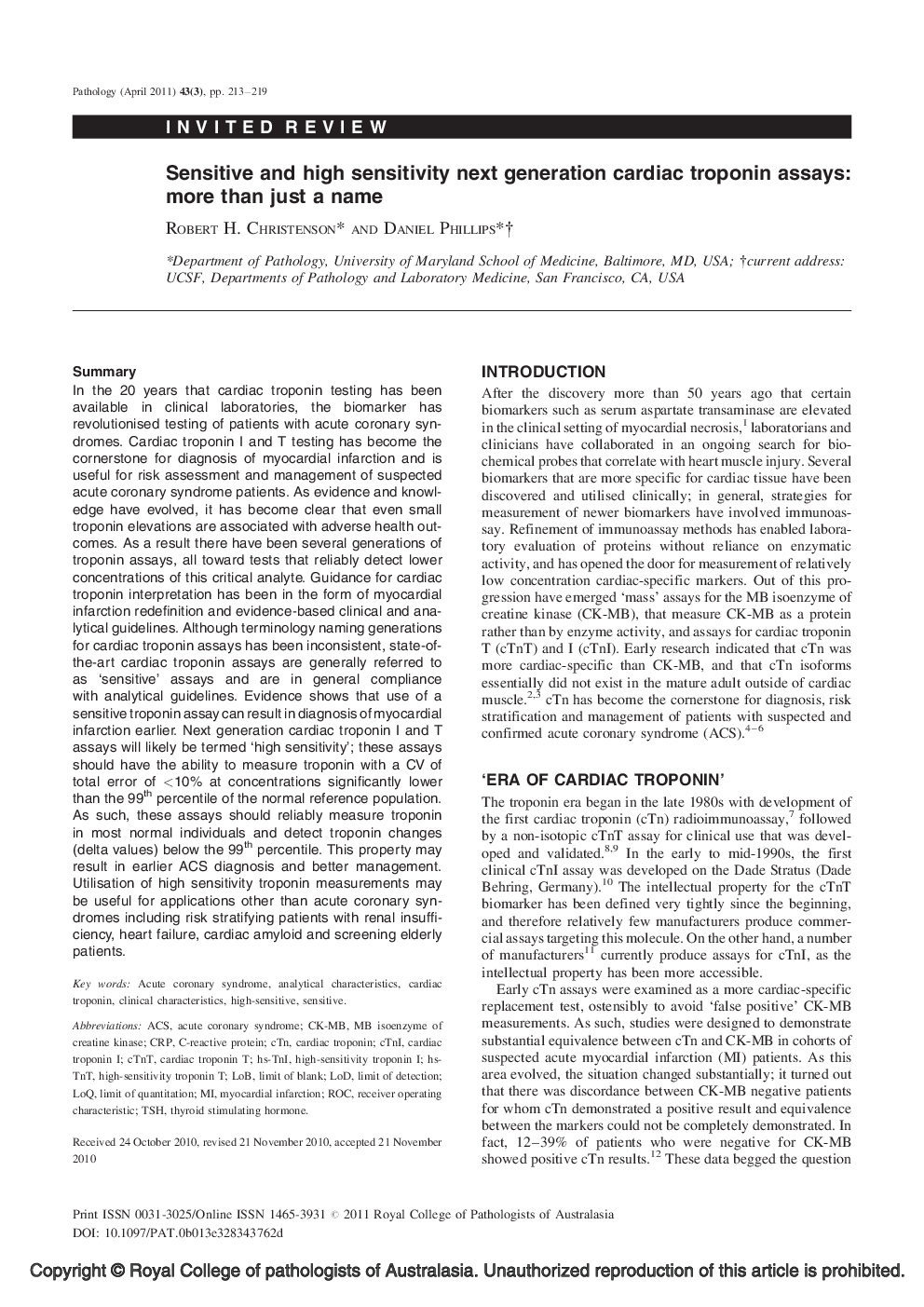| Article ID | Journal | Published Year | Pages | File Type |
|---|---|---|---|---|
| 105846 | Pathology | 2011 | 7 Pages |
SummaryIn the 20 years that cardiac troponin testing has been available in clinical laboratories, the biomarker has revolutionised testing of patients with acute coronary syndromes. Cardiac troponin I and T testing has become the cornerstone for diagnosis of myocardial infarction and is useful for risk assessment and management of suspected acute coronary syndrome patients. As evidence and knowledge have evolved, it has become clear that even small troponin elevations are associated with adverse health outcomes. As a result there have been several generations of troponin assays, all toward tests that reliably detect lower concentrations of this critical analyte. Guidance for cardiac troponin interpretation has been in the form of myocardial infarction redefinition and evidence-based clinical and analytical guidelines. Although terminology naming generations for cardiac troponin assays has been inconsistent, state-of- the-art cardiac troponin assays are generally referred to as ‘sensitive’ assays and are in general compliance with analytical guidelines. Evidence shows that use of a sensitive troponin assay can result in diagnosis of myocardial infarction earlier. Next generation cardiac troponin I and T assays will likely be termed ‘high sensitivity’; these assays should have the ability to measure troponin with a CV of total error of <10% at concentrations significantly lower than the 99th percentile of the normal reference population. As such, these assays should reliably measure troponin in most normal individuals and detect troponin changes (delta values) below the 99th percentile. This property may result in earlier ACS diagnosis and better management. Utilisation of high sensitivity troponin measurements may be useful for applications other than acute coronary syndromes including risk stratifying patients with renal insufficiency, heart failure, cardiac amyloid and screening elderly patients.
